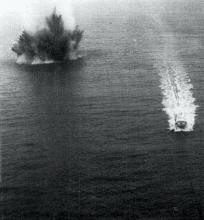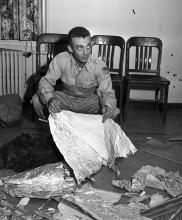Listen to today's episode of StarDate on the web the same day it airs in high-quality streaming audio without any extra ads or announcements. Choose a $8 one-month pass, or listen every day for a year for just $30.
You are here
Reinhold Tiling
In their quest to deliver packages almost before you order them, some companies are looking at using drones — small aircraft that could buzz right up to your front door. But those aren’t the first efforts to speed the delivery process with small flying machines. In the 1930s, for example, several engineers in Europe worked on delivering mail with rockets.
One of them was Reinhold Tiling, who was born in Bavaria 125 years ago today. He studied engineering, then became a pilot in the German army during World War I. After the war, he heard a lecture by Hermann Oberth, a leading expert in rockets and space travel. Inspired by the talk, Tiling soon began his own experiments.
By 1931, he’d launched several rockets, with the most successful climbing to more than a mile in altitude. And that April, he launched a rocket for the post office.
The rocket was only a few feet long. It took off from an island off the coast of Germany. When its engine shut down, a pair of wings unfolded, allowing it to glide to the mainland. Its payload of 188 postcards arrived safely. Tiling predicted that rockets would carry mail all the way across Germany, and even across the Atlantic to the United States.
That and other experiments made Tiling a bit of a celebrity. But in 1933, he and two colleagues were working on a batch of rocket fuel in his lab when the fuel exploded. All three of them were killed — ending one of the decade’s efforts to deliver mail by rockets.





